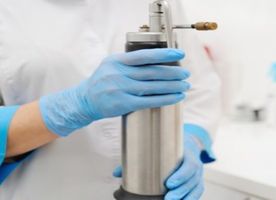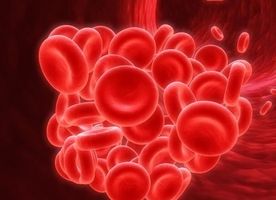General Medicine in Novena
Search and Compare the Best Clinics and Doctors at the Lowest Prices for General Medicine in Novena
Curie Genetics
Limb Salvage and Revision Arthroplasty Surgery, Pte Ltd
Thomson Medical Centre













































































































































No Time?
Tell us what you're looking for and we'll reach out to the top clinics all at once
General medicine focuses on the diagnosis and nonsurgical treatment of diseases of the internal organs. A medical doctor who specializes in general medicine is usually called a general medicine doctor or a general physician (GP). Although they mostly treat adults, they may also treat adolescents and children. They treat all medical conditions, including conditions that affect the respiratory, cardiovascular, neurological, gastrointestinal, hematological, or endocrine systems. Some of the most common conditions general medicine doctor can treat include but are not limited to:
- Respiratory system, including lung fibrosis, asthma, pneumonia, and Emphysema or chronic obstructive pulmonary disease (COPD).
- Cardiovascular system, such as hypertension and ischemic heart disease (heart attack, angina).
- The neurological system, such as cerebrovascular accident (strokes), dementia, and epilepsy (seizures).
- Gastrointestinal system, including gastroenteritis and liver disease (such as alcoholic liver disease).
- Hematological, such as anemia.
- Endocrinological, such as pituitary disease, diabetes, and thyroid disease.
A general medicine doctor can arrange a wide range of tests, such as electrocardiogram, blood pressure test, urinalysis (U/A), blood sugar level, and fecal occult blood tests. They may also arrange laboratory investigations, such as blood tests or other fluid samples from other parts of the body. Occasionally, they may also arrange a biopsy for diagnosis, which will be sent to a pathologist for analysis. General medicine doctors can also work with radiologists to use X-rays, MRI, CT scans, or ultrasound, as well as nuclear medicine specialists for certain tests, such as PET scans. They may also refer patients to another specialty for special tests, such as a cardiologist for an angiogram and a gastroenterologist for an endoscopy.
Common procedures or interventions that general medicine doctor perform are as follows:
- Perform clinical examinations of patients to evaluate, diagnose, and monitor the patient’s condition.
- Interpret findings from investigations, such as blood tests, to help reach a diagnosis.
- Use life support skills and emergency procedures, such as defibrillation, when necessary.
How Long Should I Stay in Novena?
You can leave the medical facility immediately after, plan to stay at least 2 to 5 days in Novena for a follow-up appointment. During the follow-up appointment, your doctor evaluates how your body is responding to treatment or, if you had diagnostic tests, explain the results, and discuss the treatment plan with you. However, if your doctor tells you that no follow-up appointment is necessary, you should be allowed to leave for home on the same day.
What's the Expected Recovery Time?
Recovery time can be different from one person to another, depending on the illness or disease you have and your overall health. You will be advised to take several days off work and avoid strenuous activities to allow your body to recover. Your doctor will let you know the specific time you can return to work and your normal activity.
What Aftercare is Required?
Your doctor will give you an aftercare instruction tailored to your particular condition, which may include activity restriction and recommended diet. Your doctor may likely prescribe medicine as well. It is important to take the medicine as directed and follow all the instructions closely. They will also let you know if you need follow-up appointments. For certain illnesses, they may refer you to a specific specialist.
What's the Success Rate?
For many people, general medicine is the first point of treatment. It has a high success rate in diagnosing and treating many conditions, as well as referring patients to the relevant specialist for specialized treatments. Experienced and skilled general medicine doctors can learn a great deal by simple observation. Looking at hands, nails, skin, mouth, and eyes, as well as examining your lungs, heart, and abdomen can give them some clues and help them decide on the most appropriate tests to undertake to confirm their clinical suspicions.
Are there Alternatives?
The alternatives depend on your condition. For example, you should be able to see a cardiologist for heart conditions without talking to your general medical doctor first. However, in some cases, you may need a referral from your general medical doctor to see other specialists.
This information has been accurately sourced and verified by a medical professional for its accuracy, however, we strongly recommend you to consult with your doctor before pursuing medical procedures overseas.




























